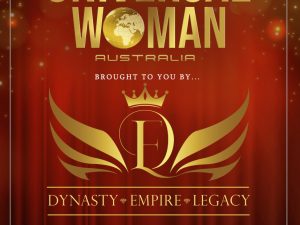It is hard to follow up on the best-performing indie film in Irish history, but John Michael McDonagh is his own man in a self-confessed trilogy. He debuted with The Guard, and its performance (a Sundance rave and a box office hit) took his nascent reputation into stellar level. The elder brother of Martin McDonagh (dubbed the best Irish playwright of his generation and the author of The Cripple of Inishmaan), he’s the harum scarum man-boy whose hidden talent could not be hidden for long.
Calvary is the second movie in that trilogy – and it has reaped accolades from Sundance and Berlin. It doesn’t have the acid-bright sunniness of The Guard, residing in the somber precincts of Ireland’s Catholic soul. It wreaks a controlled ironic-dramatic havoc there, and is a work of art that slaps convention around like the bad old priest does to that choirboy behind the sacristy – a thing that everybody does in some form or another in his tradition-bound Irish cast in a typical Irish county in ritualistic Celtic twilight.
Father James Lavelle (a different Brendan Gleeson from the one we knew in The Guard showcases his dramatic chops) is the new good priest, representative of a majority which has taken the vow of silence to heart. All the characters he meets in his parish, each in their own way, subtly or meat-handedly (like the butcher does), will go out of their way to tell him that they prefer a bad priest. It is probably a specific rubric that is an ironic departure from the poverty and boredom of his brother’s famous Inishmaan – his Irish countryside is filled with a tension created by infidelity, contrariness and perversion. The cripple here is Father James, and his parishioners put him through a ritual that opens his eyes to the self-righteous ungodliness of man. He secretly knows the person who, during confession, threatens to kill him in seven days to punish the Church – but will not divulge it to a human saviour. His atypical goodness remains firm in an Irish world (inherited from Yeats and Beckett) now at odds with the tradition it cherishes – the scary thought is that we all belong there. And we are slowly made to realize that Lavelle’s goodness will surely bring about his death.
Father James will not enter the labyrinth of anthropomorphic sin and therefore he is lost in the deadly labyrinth of a glorious but unfortunately impractical past. Therefore, in the last touches of the ritual he is absolved of his goodness by his daughter Fiona, who is on a visit after a botched suicide attempt in London. (Fiona is the child he abandoned in favour of the priesthood.) Her recent history prefigures his suicidal death at the hands of his Irish Minotaur. He remains good to the end, even as the butcher – yes, it is he – offers a friendly way out before administering the coup de grace.
Cavalry is another milestone that shines bright in the landscape of Irish poetry and theatre. The McDonagh brothers belong to the class of prophets who dramatise the West’s everlasting decline into comfortable decadence, even as they belong to different schools of dramatic thought. Martin’s works give us a philosophical grip on hope for future deliverance while John Michael’s Cavalry creates a terribly beautiful balance to that hope and sweeps us in to the tragicomic plight of the human heart. But both men create their stories independently from each other – and the merits of their work will be judged not in the light of their relationship but in how Ireland has nurtured their creative souls.









